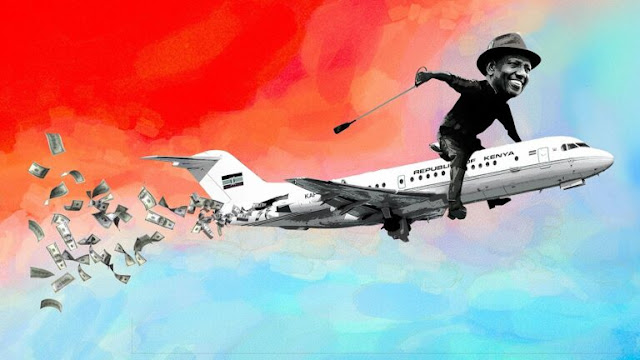Search This Blog
"Truth comes only to conquer those who have lost the art of receiving it as a friend." ~ Ravi Thakur
Featured
- Get link
- X
- Other Apps
Kenya Kwanza Government Spent Only Ksh 70 billion on Development Out of an Allocated Ksh 783 billion - Controller of Budget
Government expenditure is under scrutiny, particularly in the allocation of funds towards development versus other expenses like travel.
In the first half of the 2023/2024 Financial Year, only Ksh 70 billion out of a Ksh 783 billion budget was spent on development, raising concerns about the prioritisation of funds.
Meanwhile, the government's travel expenditure has surged, drawing criticism and calls for accountability.
Despite a substantial development budget allocation, only a fraction has been utilized, with Ksh 70 billion spent out of the allocated Ksh 783 billion. This underspending highlights a glaring gap in utilising funds effectively for crucial infrastructure and socio-economic projects. Controller of Budget Dr. Margaret Nyakang’o has emphasised the illegality of this expenditure pattern, as at least 35% should be allocated to development.
Various sectors, including Shipping and Maritime Affairs, Culture and Heritage, and Mining, among others, have not received any development funds, further exacerbating existing challenges. This misallocation directly affects essential services and hampers progress in crucial areas of the economy.
Conversely, travel expenditure has soared, reaching Ksh 11.38 billion in the same period, compared to Ksh 8.11 billion in the previous financial year. This increase comes despite President Ruto's earlier commitment to reduce recurrent expenditures. The frequent and extensive travels of the President and his deputy, totaling 51 trips to 34 countries, have raised eyebrows and sparked debates on their necessity and cost-effectiveness.
The significant expenditure on travel, totaling over Ksh 1.3 billion in a year, raises questions about the justification and benefits derived from these trips. While government functionaries argue that international engagements are necessary for diplomatic relations and networking, critics question the size of delegations and the tangible outcomes of these travels.
A comparison between administrations reveals a concerning trend of increasing recurrent expenditures, contradicting earlier pledges to curb such costs. Despite commitments to reduce recurrent expenses, supplementary budgets have seen a rise in allocations, particularly towards recurrent functions.
Efficient allocation of funds is paramount for sustainable development and prudent financial management. While diplomatic engagements and international relations are essential, they must be balanced with investments in critical sectors for long-term growth and prosperity.
Government expenditure reflects a delicate balancing act between development priorities and other expenses like travel. The discrepancy between allocated development funds and actual expenditure underscores the need for greater accountability and efficiency in resource utilisation. Moving forward, a recalibration of spending priorities is essential to ensure sustainable development and prudent financial management.
- Get link
- X
- Other Apps
Popular Posts

The One On Why Uganda Produces Shitty Ads
- Get link
- X
- Other Apps

Of Australian Bogans Masquerading As Creatives In Nairobi Agencies
- Get link
- X
- Other Apps


.jpeg)
.jpeg)
.jpeg)
.jpeg)
Comments
Post a Comment